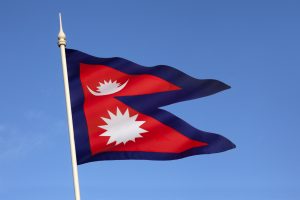A video recorded by Nepali citizens claiming to serve in the Russian Army has surfaced on social media. One of the four individuals wearing army camouflage (although it could not be verified that he was actually serving in the Russian military) requests that the government of India help bring them home. Yes, the government of India – not Nepal.
Complaining that the Nepali government has not taken steps despite their regular pleas, the Nepalis said they wanted neighboring India to repatriate them as Delhi has more diplomatic influence in Moscow compared to Nepal.
The video surfaced months after the Nepali media reported the death of a Nepali citizen while fighting in Ukraine. Prior to that, in December 2023, Nepal’s Ministry of Foreign Affairs reported the death of six Nepali citizens fighting against Ukraine on the Russian side. Another four Nepalis were reported to have been detained in Ukraine.
While the government of Nepal does not have clarity on the number of Nepali nationals joining the Russian Army in the last two years, a CNN report estimated the figure at 15,000. In July last year, hundreds of Nepalis were reported to have joined the Wagner Group, which Nepal’s foreign ministry denied for a long time but later accepted.
Reports suggest that many Nepalis joined the Russian Army under the pretext of finding a job as a cook or a helper. They did not intend to enlist as frontline fighters.
Nepal’s newly appointed deputy prime minister and foreign minister, Narayan Kaji Shrestha, spoke to his Russian counterpart on March 7. The official press release on the conversation between the two ministers said that Foreign Minister Sergey Lavrov assured Shrestha Russia was addressing the concerns. Still, any progress is unlikely to be swift, considering Russia needs soldiers on the frontline.
Legally, Nepal prohibits its citizens from serving in foreign armies, except the national armies of select friendly countries with whom it has an agreement. The ethnic Gorkhas of Nepal have served in the British Army and the Indian Army as part of the Tripartite Agreement signed in December 1947.
However, in recent years, the lack of opportunities at home has led to mass immigration from Nepal to places like Australia, Gulf countries, Southeast Asia, and the United States. Many unskilled laborers use local agencies for overseas employment, which often dupe their clients with false promises. The Nepalis serving in the Russian Army have similar tales of uncertainty and hardship to recount.
Nepalis’ entanglement in the Russia-Ukraine war reflects a recurring theme for Nepal. Since the 1990s, the nation has grappled with significant migratory movements, mainly fueled by a decade-long civil war that concluded in 2006. Despite the cessation of hostilities, Nepal struggled to cultivate sufficient opportunities domestically, leading to continued outward migration. Presently, remittances constitute a vital pillar of Nepal’s economy, underscoring the enduring impact of its citizens seeking employment abroad.
This can end up endangering Nepali lives, and not only on the battlefields in Ukraine. In 2021, a wave of repatriation requests surfaced from Afghanistan following the Taliban’s resurgence. Among those stranded were thousands of Nepali nationals serving in local security forces, left abandoned without assistance from Nepal for their return home.
While Nepalis residing overseas make significant contributions to the home economy, successive governments have failed to negotiate safer working conditions for their citizens abroad. Nepal’s challenges in effectively repatriating individuals from conflict zones highlight the pressing necessity to enhance its diplomatic capacities.
Nepalis have a pressing urge to go abroad and earn their bread. Historically, India has been the favorite destination, as the two countries do not have a passport regime and the border is completely open, making it easier for Nepalis to work in India without paying an agent. However, more Nepalis have preferred to go to third countries for better salaries in recent decades.
Even though private-sector aspirants from Nepal may have shifted to third countries, many youths in Nepal still aspire to join the Indian Army for better perks and stability, on par with their Indian counterparts. Unfortunately, no recruitment has taken place since India introduced a new model of short-term service in the Indian Army in June 2022.
Nepal wants India to recruit its citizens for the Indian Army under a long-term scheme. Currently, Nepalis make up around 60 percent of the 40,000 Gorkha soldiers serving in the Indian Army. With the two governments failing to reach a consensus, the aspiring recruits are finding other ways to be employed. The Russian Army is one such alternative.
In the face of such challenges, Nepal must strengthen its diplomatic ties, both regionally and globally, to better protect the interests of its citizens overseas. Additionally, concerted efforts must be made to create more opportunities at home, thereby reducing the need for outward migration and mitigating the risks faced by Nepali workers abroad.
Ultimately, the plight of Nepali citizens in the Russian Army serves as a wake-up call for Nepal to prioritize the well-being of its people, both at home and abroad. Only through effective diplomacy and proactive governance can Nepal ensure the safety and prosperity of its citizens in an increasingly interconnected world.

































